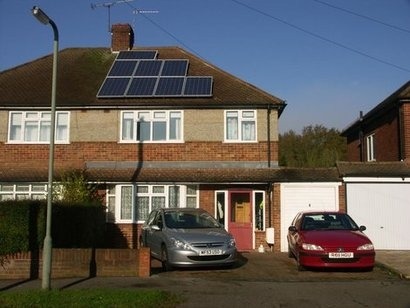
First it was the announcement by UK Energy Secretary Amber Rudd that the government would end the Renewables Obligation (RO) a year early. This was then followed last week by the Chancellor, George Osborne, who announced plans to scrap the UK’s Zero Carbon Targets and remove the exemption from the Climate Change Levy (CCL) for renewable energy businesses. The latter move will effectively turn the CCL from a policy designed to incentivise renewables into one that is, in essence, a carbon tax on renewable energy. The completely illogical nature of such a thing was swiftly summed up by a Friends of the Earth campaigner who suggested it was like making apple juice pay an alcohol tax.
However, it doesn’t end there. The Energy Secretary has now announced plans to cut support for small-scale renewables, including solar energy and biomass. This includes rooftop solar, wood pellet producers and biomass plants. It also includes removing subsidies for coal plants in the UK that are or would shortly have embarked on the process of converting to biomass.
The Energy Secretary justified her decision by saying that it was essential to control costs imposed on the consumer.
“My priorities are clear” Ms Rudd said. “We need to keep bills as low as possible for hardworking families and businesses while reducing our emissions in the most cost-effective way. Our support has driven down the cost of renewable energy significantly. As costs continue to fall it becomes easier for parts of the renewables industry to survive without subsidies. We’re taking action to protect consumers, whilst protecting existing investment.”
She added that the government had already provided vital financial support to the renewable sector to help create new and innovative technologies, reduce carbon emissions and increase the supply of low-carbon electricity. She also explained that projections supplied by the Office for Budget Responsibility (OBR) indicated that green subsidies from consumer bills are set to be higher than expected when the Levy Control Framework (LCF) – the mechanism that is designed to control energy funding from household bills – was first established. Ms Rudd indicated that a number of uncontrollable factors had driven this process, including a higher-than-expected take-up of Feed-in Tariffs and a higher-than-expected advancement in technology – resulting in higher levels of electricity generation.
Nevertheless, industry and environmental groups have slammed the decision, claiming that it will damage investment and jeopardise the credibility of the UK government at the forthcoming climate summit in Paris in December. Greenpeace accused the government of exaggerating the impact of renewable energy on household bills and said that the timing of the announcement could not be worse, as solar is nearing the point at which it could have survived without support from subsidies.
The amount paid by households for renewable energy through energy bills has often been overestimated, according to a report released in March. The study by RenewableUK showed that while people often estimate an average of £259 going towards green energy, the actual figure is £18.
Earlier this year, the International Monetary Fund (IMF) pointed out that global subsidies for fossil fuels during 2015 would amount to $5.3 trillion (£3.4 trillion), more than the combined spending of all the world’s governments on health. The well-known economist and author of The Stern Report, Sir Nicholas Stern, pointed out that this shatters the myth of ‘cheap fossil fuels’ by showing just how large their costs are.
Research by Policy Exchange finds that Feed-in Tariffs and the Renewables Obligation (RO) contribute £10 and £38 respectively to renewable energy. According to the director of the UK Energy Research Centre, Jim Watson, out of a total average yearly electricity and gas bill of £1,338, consumers pay just £10 (0.7%) for solar energy subsidies. If this was to disappear completely, the UK solar energy industry would risk ‘dropping off a cliff’.
“Were subsidies to simply stop I think activity would probably fall off very significantly” Mr Watson told The Guardian. “Eventually you’d want the industry to stand on their own two feet and not have subsidies. The point I’d make with solar is that costs have been reducing very rapidly. It’s not yet at that point where it can stand on its own two feet, but any government should expect that point to be within about five years. So the question is do you withdraw support now and risk it dropping off a cliff. Or do you maintain the support, albeit at a reducing rate for the next few years and give it that chance to demonstrate it can be competitive.”
The Solar Trade Association pointed out that solar is actually one of the cheapest ways in which the government can meet its climate change targets.
“Let's get this straight, in the RO [renewables obligation], which is the solar farm's main support subsidy, it's costing about three pounds per annum on people's energy bills - it's a tiny amount when you compare it with other types of energy, like nuclear for example” said Jonathan Selwyn, a Board Member of the STA.
According to the Welsh Government, jobs are now under threat by reductions to subsidies for projects already in the pipeline. A spokesman said that the decision reinforces the call by the Welsh Government for Westminster to devolve all energy powers to Wales to ensure the country obtains the maximum benefit from renewable energy. Scotland’s Energy Minister, Fergus Ewing, said that, again, the Scottish Government had not been properly consulted and that there are over 3,000 jobs dependent on solar power in Scotland.
For additional information:

